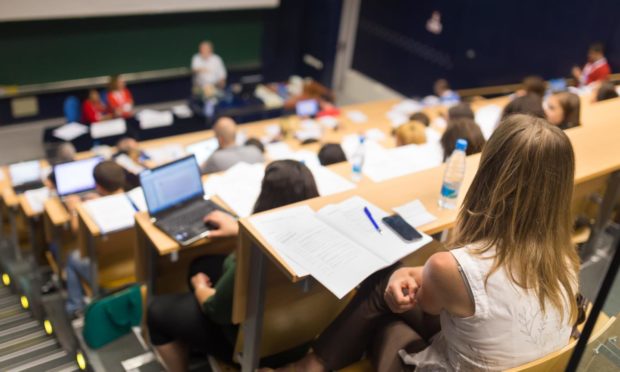Across the UK, universities are now sharing plans to continue the blended learning regime adopted during the pandemic into the next academic year.
Universities in Aberdeen, St Andrews and Edinburgh have all warned that, while there will be some in-person delivery, lectures will all continue online. The same has been pledged by the University of Manchester, the London School of Economics and UCL, among others.
There is no diplomatic way of putting this: these plans are outrageous and throw the entire student community under the bus.
Lectures are perhaps the most important component of university education. Not only are they were you learn most of the content, for many students lectures are the only time where they are given direct access to experienced and knowledgeable academics and public speakers.
Online lectures are a recipe for bad mental health
Staring at a screen for an hour is not the same as being in a lecture theatre. The same goes for the professor giving the lecture: talking at a screen as opposed to an audience will cause one’s voice naturally become monotonous, making the lecture much harder to engage with.
Online lectures are remarkably less motivating, leading to students performing way below their potential. They also allow for a minimal relationship between student and teacher which makes it significantly harder to seek academic support.
In short, online lectures are very depressing and stoke the fire for bad mental health.
University students need in-person interaction as much as school kids
Only in the most extraordinary of circumstances should in-person lectures be suspended. This September, after 18 months of real teaching being suspended, is it right for students (many of whom pay extortionate sums of money) to continue sacrificing their education to prevent the spread of a virus against which the entire UK adult population will be protected?
Earlier this year the UK sacrificed the education of 10 million children for two months because closing schools brought with it the benefit of saving an immense number of lives. However, as infection rates and risk of serious illness and death reduced, keeping so many kids from the classroom could no longer be justified.
Why should university students be treated any differently? Do people think that because we’re older, we don’t require as much academic assistance? That we don’t crave face to face interaction as much, both with our fellow students and teachers?
It is no longer a life or death situation
Don’t get me wrong, I’m not saying university students should ever be prioritised above school children. As a university student, if I had to choose between universities and schools returning to normal, I would choose schools in a heartbeat.
From September we will no longer face a choice between who gets to continue on with their normal lives and who is sacrificed
Still, from September we will no longer face a choice between who gets to continue on with their normal lives and who is sacrificed. Almost the entire adult population will be fully vaccinated, with the vulnerable in line to receive “booster shots”.
Covid-19 will never be a thing of the past – the virus will still find people to kill, and university lectures may occasionally contribute to a few of those deaths. But the fact is the number of these incidents will be so small proportional to the 2.5 million students who will once again benefit from in-person lectures, that it is just something we have to accept.
The wellbeing of young people is a long-term threat of Covid
Over the last year, we have all made sacrifices to protect against the immediate threats of coronavirus. As we emerge from the crisis, our efforts as a society must turn towards making sacrifices to protect against its long-term threats.
Chief among these will be the effects on young people of the restrictions we have endured for so long. There is a plethora of things to be done, but prioritising a return to normal education as quickly as possible is a no-brainer.
Adrià Aranda Balibrea is Opinion Editor of the University of Edinburgh’s student newspaper


